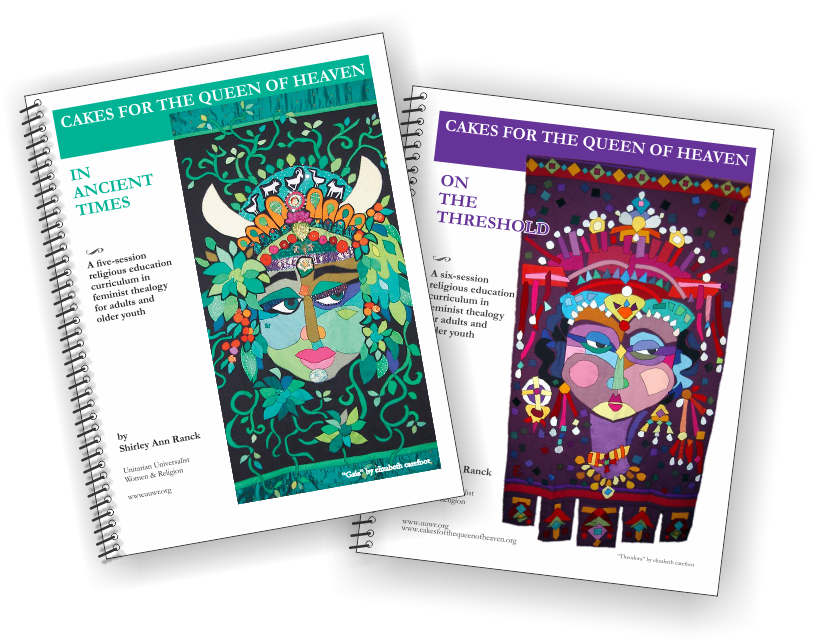
Theme Introduction
Upon rereading our Women and Religion Resolution (within which the International Association of Liberal Religious Women, IALRW, is included), I see our yearning to facilitate peaceful influence. I call the means to that influence, egalitarian complementarity. It is the opposite of controlling, top/down patriarchal ways. It is a way for collaborative partnership when a relationship between two or more persons is based on sharing leadership power. Egalitarian complementarity has flexible “give and take” for idea creation as the situation for action specifically demands.
This decision making exchange naturally determines who assumes leadership through respectful exploration to find who has the best ideas and resources “to do the job.” It’s a liberating process, releasing human potential. Freedom for those involved to act from one’s best self for the good of all is a prerequisite. This attitude comes from each person’s heart and starts with practicing this peaceful process of creative liberation with those closest to us at home. As the ancient Chinese put it, the attitude of peacefulness then can spread to neighbors, cities and nations to finally becoming peace in the world.
Geri Kennedy reports, "We did have a wonderful retreat with 53 women. Workshops ranging from Immigration issues to Tarot reading. We had a lovely croning ceremony for 10 women too!"
http://www.facebook.com/home.php#!/pages/WR-PCD/128785297149480

No Silent Witness: The Eliot Parsonage Women and Their Unitarian World (Oxford University Press, 2010)
Dr. Cynthia Grant-Tucker's 2010 biography, "No Silent Witness," follows three generations of ministers’ daughters, mothers, and wives in one of America’s most influential Unitarian dynasties: the family of Abby Adams Cranch and William Greenleaf Eliot. Shifting the center of gravity from pulpits to parsonages, and from confident sermons to whispered doubts, it humanizes the Eliot saints, demystifies their liberal religion, and lifts up a largely unsung female vocation.Spanning 150 years from the early 19th century forward, the narrative probes the women’s defining experiences: the deaths of numerous children, the anguish of infertility, persistent financial worries, and the juggling of the often competing demands that parishes make on first ladies.
Here, too, we see the matriarch’s granddaughters scripting larger lives as they skirt traditional marriage and women’s usual roles in the church. They follow their hearts into same-sex unions and blaze new trails as they carve out careers in public health service and preschool education.
These stories are linked by the women’s continuing battles to speak and make themselves heard over the thundering clerical wisdom that contradicts their reality.
I found the book to be a fascinating read, mostly because Dr. Tucker's narrative of these women's lives quickly pulled me in to "see" for myself what they had gone through. Especially in a world where our foremothers' stories remain largely untold, the female perspective on history really brings new light to the past. Unitarian-Univeraliststs have our revered historical figures of the 19th century, but No Silent Witness gives a rounded-out view of their lives and times.
Her research into each woman is thorough. Genealogical charts and a family roster are provided to give the reader more solid information to bring all the stories into a whole. She makes every effort to show the struggles of each woman in attempting to keep in her life some kind of balance between her own needs and those of others. Their varying level of success speaks to us in a very personal way, as Tucker delves into their personal qualities, hopes, dreams and emotions.
Author of the acclaimed Prophetic Sisterhood, Tucker also offers an online Discussion Kit for groups, www.nosilentwitness.org.While at the [SWUUW] conference this year, I wrote a tribute poem to the women of SWUUW in particular. From the third of wave of feminists to you all...thanks.
Birthright: The Third Wave
She changes everything she touches
The women in my life have been a sacred circle;
They are weavers of a web of history and love,
Committed to change, committed to justice, committed to the journey.
(We are sisters, on a journey, singing out as one)
Their threads have led me to books and music and protests.
Their threads have held me suspended and safe, saved me from
An abyss of self loathing.
Their threads have mended me when I was frayed and
Pieced together disparate cloths, fabric from the different pieces
Of my soul.
Their voices sing for freedom.
Their bodies and minds have met injustice and suffering.
Their bodies and minds have delivered miracles,
The soft flesh of newborn
Ideas.
They have given me a labyrinth for contemplation
And songs to sing outside the capitol
Or the detention center
Or in my classroom
Or in my daughter’s room, at night as she sleeps.
They have given me the bright colors of patchwork quilts
and hippie skirts
and I wear them in my hair
and on my toes
and emblazoned in tattoos.
They have given me gardening tools and seeds,
And a little plot of ground to green
And I call this place
Mine
Although I will gladly share the harvest
After the seeds have become vegetables and fruits and flowers.
There is a basket for each visitor—you can fill one if you like.
Just plant some seeds yourself,
There’s plenty more space
In this community garden.
We can share the compost pile,
it is rich and full and warm.
(Heyanna hoyanna heyanna ho)
We are struggling, each of us in our own place on the path
To the center.
Some of them are waiting for me now,
Already there,
And I can hear their voices, softly:
(And everything she touches changes.)
--Sarah Oglesby-Dunegan




